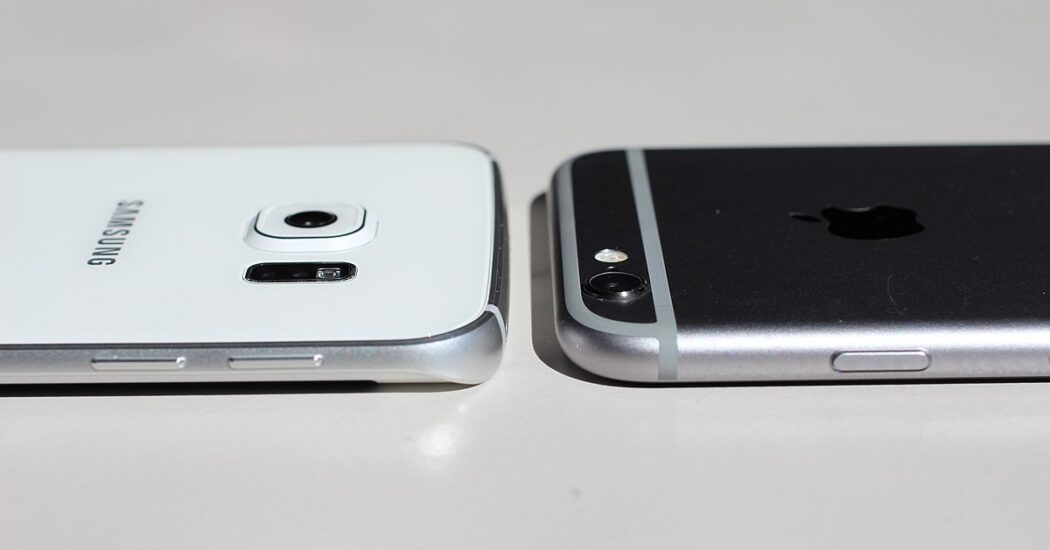If you’re in the market for a new smartphone and wondering, “Is iPhone camera better than Samsung?” you’re certainly not alone. Many people wrestle with this question when choosing a new device. This article provides a comprehensive, detailed comparison of iPhone and Samsung cameras to help you make an informed decision.

Table of Contents
Is iPhone Camera Better Than Samsung?
So is iPhone camera better than Samsung? Below, we dive into the specs and features of each camera…
Understanding Camera Specifications
When you begin your journey to answer the question, “Is iPhone camera better than Samsung?”, your first step is understanding the various specifications that make up a smartphone camera. At the forefront, terms like megapixels, aperture, and image stabilization may catch your eye.
But it’s essential to understand that these terms are merely the tip of the iceberg. Other factors like sensor quality, pixel size, and even the lens material can have a significant influence on your photography experience.
For instance, a high megapixel count might make for excellent marketing, but without a good quality sensor and capable image processing algorithms, those extra megapixels may go to waste.
Comparing Megapixels
When comparing the megapixels between iPhone and Samsung cameras, you’ll find both companies offer relatively high megapixel counts, especially in their flagship models. While higher megapixel counts do allow for larger prints and can capture more detail, they are only part of the equation for excellent photo quality.
The image sensor is equally, if not more, important because it’s responsible for capturing light and converting it into an electronic signal. Sensors in both iPhone and Samsung cameras are technologically advanced, but they are processed differently due to each company’s unique software algorithms and computational photography techniques.
This difference in processing can result in variations in color reproduction, sharpness, and even dynamic range between the two brands.
Read more iPhone camera topics here – iPhone Camera: How To, Problems & Solutions
Evaluating Aperture Size
When it comes to aperture size, smaller f-numbers, like f/1.6, denote a wider aperture that allows more light to hit the sensor, enhancing low-light photography. iPhones generally excel in this department, featuring smaller f-numbers in many of their new models.
Samsung cameras, although competitive, often have slightly higher f-numbers, like f/1.8 or f/2.0. The consequence of this is most visible in low-light conditions and when you’re aiming for a shallow depth of field, resulting in that beautifully blurred background known as ‘bokeh.’ The wider the aperture, the more pronounced these effects will be, offering a creative edge in various shooting conditions.
Assessing Image Stabilization
Image stabilization is pivotal for capturing sharp images, particularly in challenging conditions like low light or when capturing fast movement. Both iPhone and Samsung employ optical image stabilization in their higher-end models, which involves physically moving the lens or sensor to counteract hand movement.
Optical stabilization is generally superior to digital stabilization, as the latter often results in a crop of the image and possible loss of quality. Some Samsung models boast a ‘Super Steady’ mode that further enhances video stabilization.
iPhones, however, aren’t left behind; their software algorithms work in tandem with hardware capabilities to deliver smooth and steady footage, making it difficult to declare a definitive winner in this area.
Additional Features
Advancements in smartphone camera technology have led to the introduction of various additional features, from night modes to ultra-wide lenses and even AI-enhanced shooting options. Samsung often pushes the envelope with a plethora of modes, including Single Take, which captures a variety of formats simultaneously.
iPhones, while offering fewer modes, focus on delivering a highly optimized experience where the software and hardware work seamlessly. Features like Smart HDR and Deep Fusion on iPhones ensure that each shot is well-balanced and full of detail.
Conclusion: Is iPhone Camera Better or Samsung?
So, is iPhone camera better than Samsung? The answer largely depends on what you’re looking for in a smartphone camera. If you prioritize low-light shooting, you may lean toward iPhones due to their slightly larger apertures.
On the other hand, if you want more control over your shooting settings, Samsung might be the better choice for you. Regardless of your decision, both brands offer exceptional camera technology that can meet the needs of most amateur and even some professional photographers.
